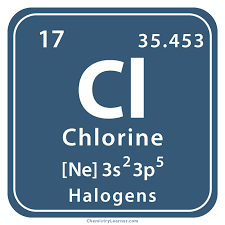Is Chlorine in Drinking Water Safe?
You turn on the faucet, expecting clean drinking water. After all, the water is treated with chlorine before it reaches your home, right? So it must be safe, right? Unfortunately, that may not be the case. A new study suggests that chlorine in drinking water may be linked to an increased risk of cancer.
The Study
The study, recently published in the journal Science, found that chlorination byproducts (CBPs) can interact with DNA in a way that may lead to cancerous mutations. In the study, CBPs were found to damage a specific type of chromosome called "telomeres." Telomeres are responsible for protecting our DNA from damage.
So, what does this mean?
Basically, the study suggests that if CBPs are present in drinking water, they could potentially cause cancer by damaging our DNA. This is a serious concern, as chlorination is the most common method of water treatment in the United States. According to the Environmental Protection Agency (EPA), more than 90% of public water systems in the US use chlorine for treatment.
The Consequences of the Study
This study has major implications for public health. If further research confirms that CBPs in drinking water can indeed cause cancer, it would mean that millions of people across the country are at an increased risk of developing the disease. This is a serious concern, and more research is needed to determine whether or not CBPs in drinking water are indeed carcinogenic.
In the meantime, if you're concerned about your exposure to CBPs, there are steps you can take to reduce your risk. For example, you can install a whole-house filter to remove CBPs from your tap water before they enter your home. Or, you can choose to drink bottled or filtered water instead of tap water.
In Conclusion:
This new study suggests that chlorine in drinking water may be linked to an increased risk of cancer. While more research is needed to confirm these findings, there are steps you can take to reduce your exposure to chlorination byproducts in the meantime.

